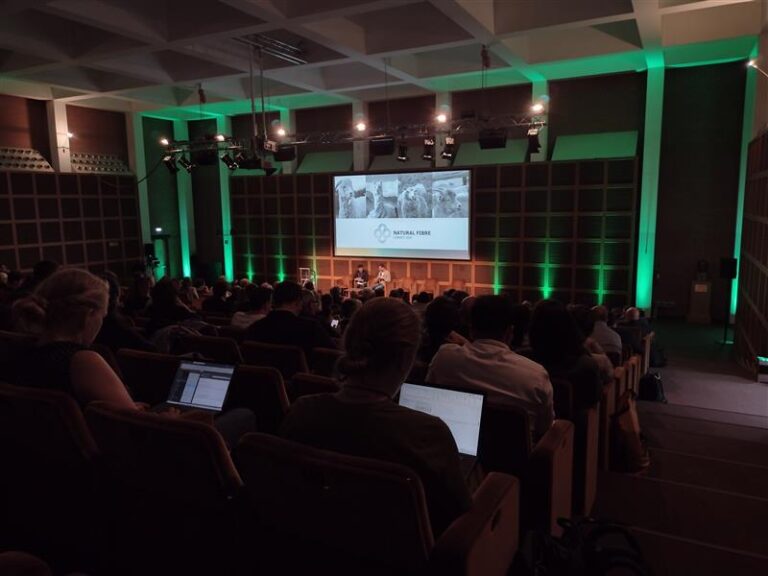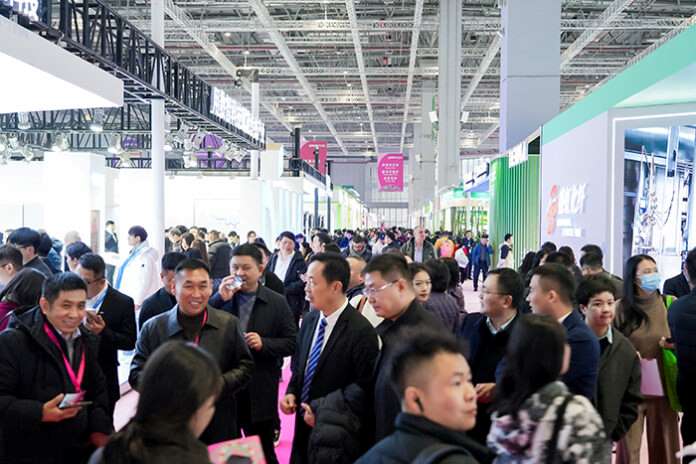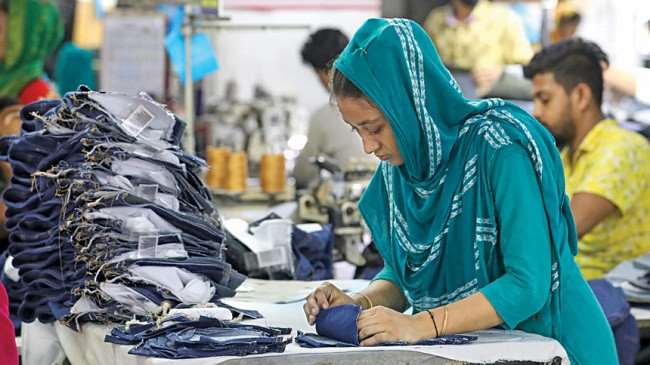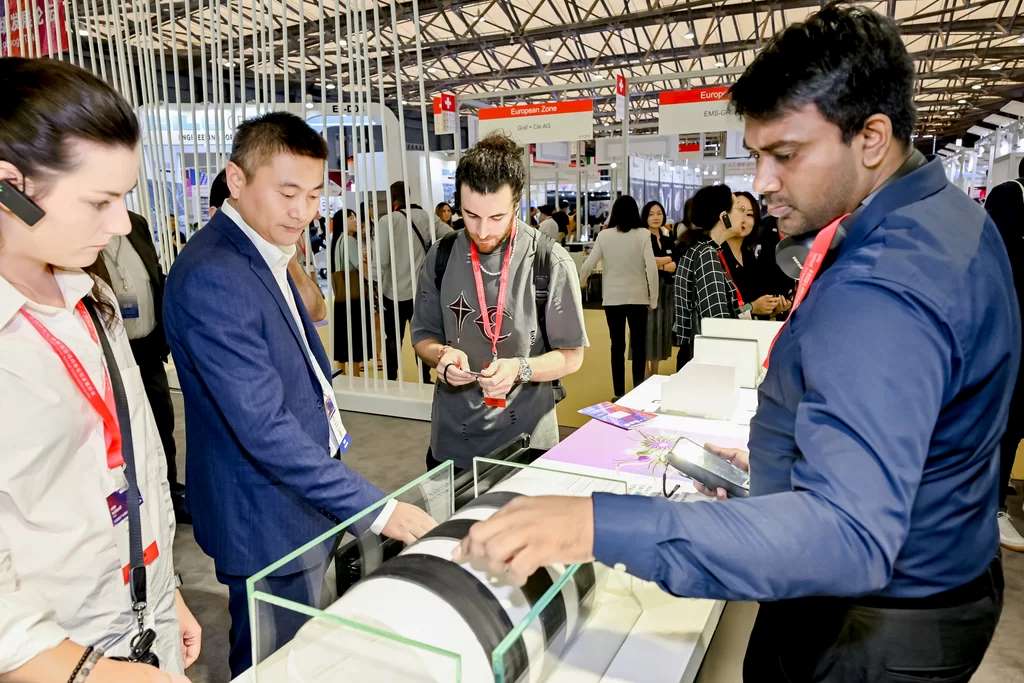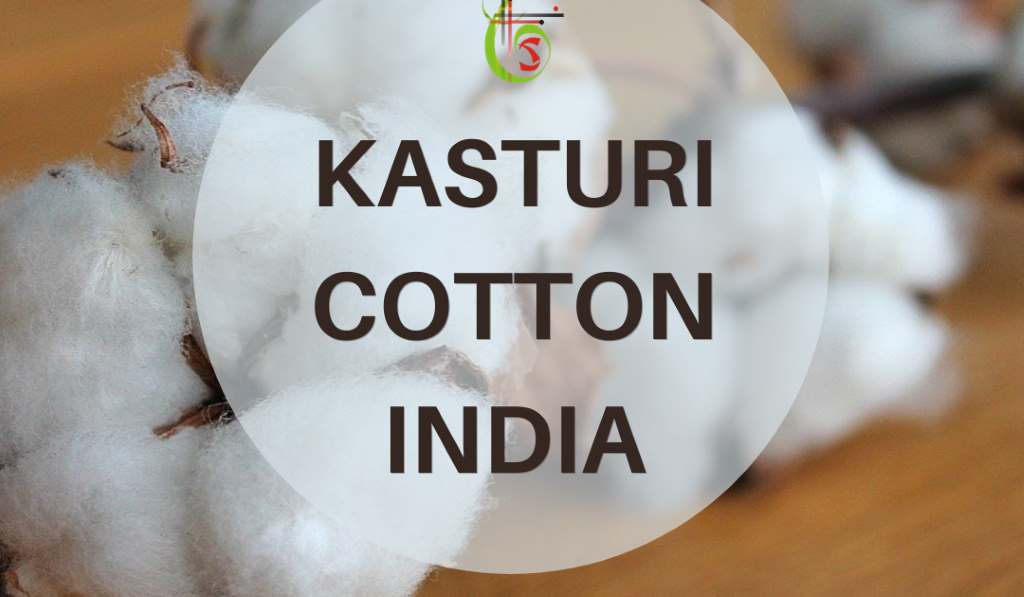FW
Leading Moroccan textile companies showed up at Turkey's home textile event, EVTEKS, showcasing their products with the aim of reaching out to Asian markets via Turkey. Morocco sees the five-day fair as an important event in the country's bid to build export ties between Moroccan textile firms and Asian and Middle Eastern countries.
Moroccan textile firms attended the fair to diversify their product ranges and develop new partnerships in the region. In 2013, Morocco saw a 51 per cent decline in its home textile exports. It launched a new export strategy to become a textile leader by 2025, with a major objective of opening up new markets. The European markets are saturated and the 2008 economic crisis has made exporting to those countries harder. That is why Morocco needs to look for new markets.
Tangier-Med, a cargo port located about 40 kilometers east of Tangier, Morocco, is an important platform for Morocco to export its products to destinations in Russia and North America. The 19th edition of EVTEKS 2014 Istanbul was held from May 21 to 25. It is a home textiles exhibition. Home textile products, carpets, tulles, curtains and bed linens are some of primary items of exhibit at the show. Others are: upholstery products, furniture items, wall coverings, solar energy equipments, textile inputs, bath accessories and kitchen textiles.
cnrevteks.com/
Cambodia's nascent stock market is set to double its number of listed companies when Taiwan garment company Grand Twins International becomes the second firm to go public in the Southeast Asian nation. Grand Twins, one of the largest clothing manufacturers operating in Cambodia and which counts Adidas and Reebok among its clients, is scheduled to make its market debut on May 29 after a $19.3 million IPO.
Seeking working capital and to expand a factory, Grand Twins sold 8 million new shares, or 20 per cent of the company. A lower offer price would entice more investors to buy during the listing. Grand Twins' listing comes amid strikes and sometimes violent protests in Cambodia's garment industry as workers call for higher wages and better safety standards.
The industry, which garners more than $5 billion dollars in annual revenue and employs 6,00,000 people, is key to Cambodia's fast-growing economy and has attracted foreign investment as manufacturers seek cheaper alternatives to China. Grand Twins International, which employs about 5,600 workers, made a $8.79 million net profit in 2012. The company makes apparel for export mainly to countries in Europe and to United States.
A Chinese company is establishing a textile industrial zone in Addis Ababa, Ethiopia. Zhejiang Jinda Flax is a subsidiary of Chinese Kingdom Holdings and produces textile decoration fabrics such as weave fabrics, yarn decorated fabrics and calico printing fabrics, which are widely applied to clothing sofas, curtains and bed appliances.
The company and the Ethiopian government have agreed to work jointly for the establishment, development and construction of the Kingdom Linen Textile Industrial Zone in Ethiopia. Before June 2015, Zhejiang will commence the construction of phase one of the industrial zone project. In addition, the Chinese company will train 50 Ethiopians in industrial park production facilities.
Ethiopia is home to over 230 textile and garment industries with 20 training institutes, employing about 37 per cent of the country’s public sector work force. Eleven Chinese companies are already in Ethiopia and involved in the manufacturing of leather and leather products, textile and garments.
China is the third-largest foreign investor in Ethiopia by direct investment volume. As margins get tighter at home, Chinese companies are looking further afield, and many are settling in Ethiopia as an attractive alternative for their factories and plants. Chinese companies are assembling goods in Ethiopia to ship back to China, which is more profitable than producing in China today.
jindacorp.en.ecplaza.net/
Export of textile and clothing from Pakistan grew by 6.5 per cent during the first 10 months (July-April) of this fiscal year. Export of low value-added products, such as yarn other than cotton yarn, was up 132.39 per cent, made-up articles excluding towels, bed wear 11.46 per cent and other textile manufacture by 21.68 per cent during July-April 2014 compared to the same period of last year. However, the export value of textile and clothing fell mainly because of a decline in export of value-added products.
In the value added sector, export of bed wear increased by 6.71 per cent, and knitwear by 16 per cent in April 2014. However, exports of readymade garments dipped by 6.76 per cent. Exports of towels dipped by 12.92 per cent, cotton yarn 30.03 per cent, cotton cloth 7.35 per cent and tents 23.84 per cent during the month. Raw cotton export witnessed a robust growth of 23.28 per cent. Total export proceeds increased by 4.24 per cent in July-April 2014 from the corresponding period last year.
Only six textile products witnessed positive growth among all the textile and clothing categories. The growth of textile and clothing stagnated at around 7 per cent in the last few months because of capacity issues, especially in Punjab, which is facing shortage of electricity and gas.
Retailers like New Look and Inditex want the Cambodian government to ensure better treatment of garment factory workers in the country. Workers campaigning for an increase in the national minimum wage and improved working conditions in factories have faced detention and intimidation. A series of mass faintings at clothing factories have also highlighted their poor conditions.
Global brands say that if they are to continue sourcing from Cambodia political stability and respect for human and worker rights are essential. In the past few months striking garment workers, who want their monthly minimum wage to double, have faced brutal action by police with at least five workers dead. Some workers involved in the protests have been dismissed and some factory owners have responded to protests with lawsuits against union leaders.
An estimated 4,00,000 people, mostly women, work in Cambodia's garment factories which are the country's biggest export earner. The majority of Cambodia’s exports to the European Union, over 89 per cent, are of textiles such as garments and shoes.
Advocacy groups are urging clothing brands to review their purchasing practices and take action to ultimately end low wages, which are at the root of the bloody demonstrations in Cambodia.
Karl Mayer has developed a series of lace raschel machines committed to beauty and efficiency as well as denim technology from a single source. An improved Jacquardtronic lace machine focuses on patterning diversity. On the MT 51/1/32 machine it is possible to produce the typically Textronic fall plate effects in a more complex and elaborate way. The new pattern beam warper PBW 130"/2 can produce pattern beams with laps that combine a long running length with identical diameters. In this way, it is possible to tap the full potential during the subsequent processing on lace raschel machines.
The ball warper is characterized by a controlled, exact and gentle joining of the yarns to ropes and by a careful lap formation. The laps show an entirely parallel build-up and are of high quality. The long chain beamer joins ropes to warp beams, offering perfect manufacturing quality, high efficiency and easy handling.
All these machines will be displayed by Karl Mayer at ITMA ASIA + CITME, June 16 to 20, 2014. In addition visitors can also get to see the dye trough Variobox and model of the indigo dye-sizing machine Indig-O-Matic. The warp preparation unit will be presented as a competent full-range supplier of the denim technology.
Pakistan's upcoming Union Budget will have relief for the textile sector. The Ministry of Textile wants the restoration of zero-rated sales tax regime for the sector. Pakistan feels the rising labor cost in neighboring countries, including India and Bangladesh, will provide it an edge. In 2005, the no-payment no-refund system was introduced and it not only generated much revenue but stopped fake refunds. Textile exporters have been assured their pending sales tax refund claims will be cleared soon.
Exporters say they are facing a liquidity crunch. They recommend that all refunds should be reimbursed to exporters at the time of export proceeds realization, separate status and top priority be given to export-oriented industries in the supply of power and gas as well as water, and that the textile policy be implemented in letter and spirit.
There is a proposal to transfer the Export Development Fund, which is received from the textile sector, to the ministry of textiles so that it could be spent on research and development. The Ministry of Textiles wants the sector to develop more value-added textile products, which will enable it to tap the international market.
The Society of Dyers and Colorists (SDC) has given this year's innovation award to Novozymes for its Combi process. Novozymes is a biotech company with a strong focus on enzyme production. Its bio solutions enable everything from the removal of trans fats in food to advancements in renewable energy sources.
The Combi process is an innovative solution that uses neutral cellulases rather than acidic cellulases, making it possible for textile manufacturers to combine the biopolishing and bleach clean-up process ( the removal of residual hydrogen peroxide) in the dyeing step, and in turn, saving time, energy, water consumption and ultimately costs when compared to traditional processing.
Combi creates better quality and more durable textiles. Through eliminating the formation of fuzz and pills on fabrics during the dyeing process, consumers can keep clothes looking newer for longer after repeated wash and wear. Novozymes’ innovative solutions have helped textile manufacturers create more durable and high quality textiles for over 60 years. With sustainability continuously growing in importance, Novozymes’ effective biosolutions can help manufacturers create exceptional fabrics that stand out while achieving their sustainability goals.
SDC is the world’s leading educational charity dedicated to advancing the science and technology of color worldwide.
The 5th edition of Tissu Premier Collections, held on May 14 and 15, 2014 at Lille Grand Palais saw 1,797 visitors including buyers, stylists and product managers. Features like new distinct areas grouping exhibitors by sector (fabrics, textiles accessories, textile, design, ready-to-wear and fashion accessories) and a homogenous, easy-to-navigate hall areas were focal points of the event. The show’s compact and condensed presentation of winter 14/15 updates reinforced the practical, B2B-orientated nature of the Tissu Premier Collections.
The latest products from the fabrics and textiles accessories sectors displayed with the rising items of the apparel and accessories collections gave, at a glance, a complete picture of all possible updates for final capsule collections or winter add-ons. The real-time showcase was accompanied by videos showing 3D models in real-life contexts wearing garments made of new fabrics from exhibitors’ collections, all created four ready-to-use colour ranges under the overall real time theme.
Tissu Premier also brought on board leading fashion forecasting agencies, who guided visitors through their last-minute purchases. These included a talk by Dominique Mettraux from Peclers Paris, presenting an analysis of the show’s fabrics offer and highlights of the Forum with regard to brand new offers.
The talks were designed to point towards new avenues of societal reflection, but also to offer pragmatic options for upcoming summer 2015 trends in talks by Carlin, Promostyl and Nelly Rodi.
Most visitors were French (67 per cent of the total) and highly qualified industry professionals, mainly from big retail chains and central purchasing offices and frequently based in northern France. Spanish and Italians also visited the show. Short-term orders and last-minute series were the highlights of Tissu Premier Collections, although exhibitors also offered summer 2015 products to give buyers ample time to fine-tune or rework next season’s collection.
The next edition is scheduled to take place on November 26 and 27, 2014.
With export orders getting diverted to Bangladesh from China and Vietnam due to the ongoing tension between the two, a vista of new opportunities have opened up for Bangladesh denim makers. A rise in demand has forced industry players to think of increasing their production capacity and upgradation.
Bangladesh is the second largest producer of denim products after China and ships around 180 million pieces of denim jeans around the world annually. The country has more than 5,000 factories concentrated around Dhaka and the port city of Chittagong. Players claim that although other apparel segments are facing trouble due to factory compliance issues, denim makers are expected to score owing to a good price range and quality. Bangladesh is expected to fast replace China as the world's biggest denim exporter. The demand for denim goods is increasing, and the European Union (EU), the US and Russia are becoming top denim importing nations.
As per Bangladesh Garment Manufacturers and Exporters Association (BGMEA), due to better quality and a competitive price range, more than 66 international brands including Charles Voegele, G-Star, Jack and Jones, Oliver, River Island, H&M, C&A, PVH and GAP have turned to Bangladesh in the last couple of years. In last 10 months, the country's garment makers exported nearly 150 million pairs of denim jeans in men's and boys’ category.

